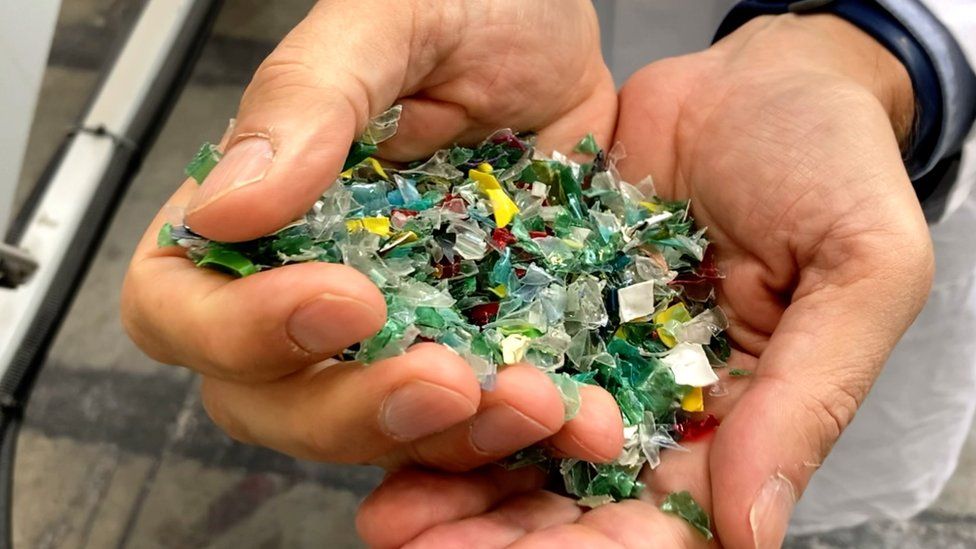-

-
-
Loading

Loading

In 2010, researcher Sintawee Sulaiman began her first lab job at the University of Osaka in Japan. Her task was to modify and experiment with an enzyme called LCC, which her colleagues had discovered in rotting leaves in a nearby park. LCC helps microbes break down the waxy coating of leaves, and Sulaiman wondered if it could also degrade plastic. To test this, she placed plastic shards in water overnight with samples of LCC, and by the morning, the plastic had started to break down. This discovery led to further research and the re-engineering of LCC to become a trained PET specialist, capable of breaking down PET plastic into its constituent monomers. This breakthrough technology has been developed by Prof Alain Marty and his colleagues at the University of Toulouse in France, who now work for Carbios. Carbios has a demonstration plant in Clermont-Ferrand, France, where they process PET plastic, including polyester-rich clothes, and turn them into soft pellets. The company plans to open a factory in northeast France by 2025, with the capacity to recycle 50,000 tonnes of PET waste per year. Carbios aims to license its technology to other companies and has formed a consortium with major brands like Nestle, L'Oréal, and PepsiCo. While Carbios' process produces the same chemical monomers as traditional plastic, the cost is projected to be 60% higher. However, as Carbios gains access to more feedstock and if a future carbon tax is implemented, the cost of raw materials is expected to decrease. Other research teams are also working on PET recycling using different enzymes, but Carbios is leading the way in scaling up their process. They are also exploring the development of enzymes for recycling more complex plastics like nylon. Overall, this breakthrough in plastic recycling technology has the potential to significantly reduce plastic waste and create a more sustainable future.